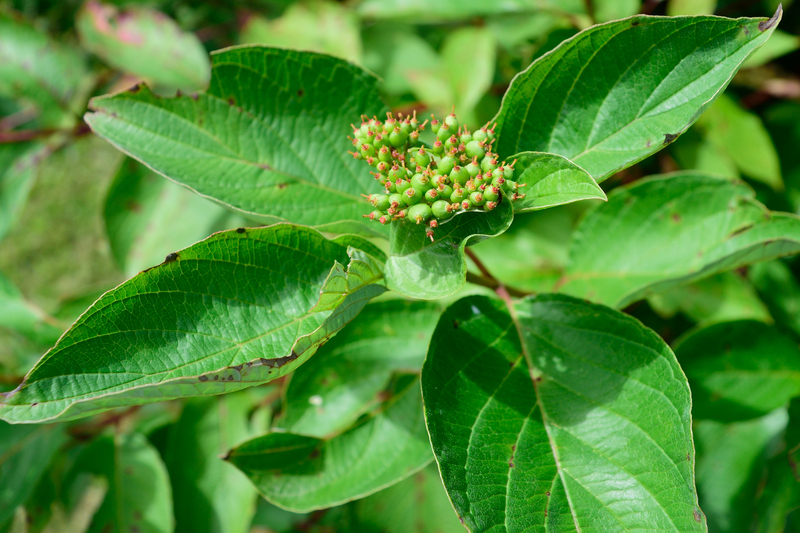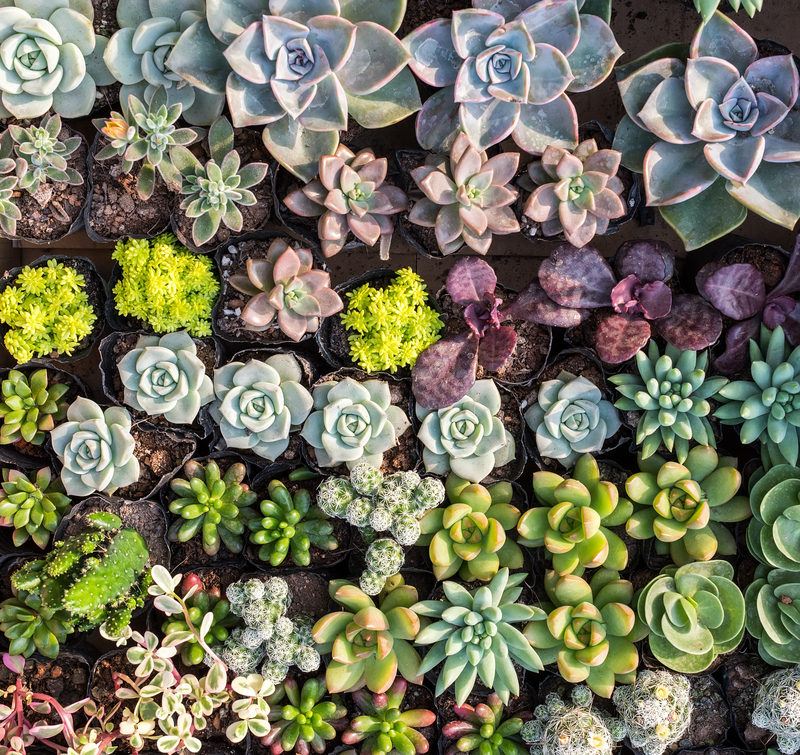Master the Art of Weed Control with These Three Tips
Posted on 30/08/2025
Master the Art of Weed Control with These Three Tips
Weeds are more than just an unsightly addition to your garden or lawn--they're tenacious invaders that rob your cherished plants of essential nutrients, water, and sunlight. Controlling weeds effectively can be an overwhelming task for gardeners and homeowners alike. However, by learning the right techniques, you can efficiently reclaim your outdoor spaces and achieve a thriving, weed-free landscape.
In this comprehensive guide, you'll uncover how to master weed control with three science-backed tips. These methods are practical, eco-friendly, and designed to help you cultivate a lush, healthy garden with minimal weed intrusion.
Understanding the Importance of Effective Weed Management
Before diving into the actionable strategies, it's essential to recognize why weed control is vital for gardeners and property owners:
- Preserves soil health: Weeds compete for vital nutrients, deteriorating soil quality over time.
- Protects plant growth: Crowded by weeds, your crops or flowers may struggle for space and sunlight.
- Prevents pests and diseases: Weeds can harbor insects and pathogens, increasing the risk for your desirable plants.
- Enhances aesthetic value: A weed-free lawn or garden is visually appealing and can even boost property value.

Three Tips to Master the Art of Weed Control
Now, let's delve into three proven tips that will help you become a weed control master. Each tip includes practical steps, expert insights, and eco-conscious approaches suitable for both beginners and seasoned gardeners.
Tip 1: Practice Preventative Weed Control Techniques
The most effective way to combat weeds is to stop them before they start. Prevention is always better than cure. Adopting smart gardening habits and practices can significantly reduce weed emergence and spread.
Common Preventative Strategies
- Mulching: Use organic or inorganic mulch (like wood chips, straw, or landscape fabric) to block sunlight from reaching weed seeds. This simple act suppresses germination, maintains soil moisture, and even contributes nutrients when using organic mulch.
- Dense Planting: Strategically plant your garden so annuals, perennials, or vegetables grow closely together. This leaves little space for weeds to take root and thrive.
- Crop Rotation: For vegetable gardens, rotating crops annually prevents weeds from adapting to a predictable environment, disrupting their life cycles.
- Edge Maintenance: Keep garden and lawn edges well-defined. Using physical barriers or edging materials restricts weed incursion from nearby areas.
Pro Tip: Mulching isn't only about controlling weeds; it also improves soil health, conserves water, and moderates temperature extremes.
Choosing the Best Mulch for Weed Suppression
- Organic Mulch: Such as bark, leaves, grass clippings, or straw, enriches the soil as it breaks down.
- Inorganic Mulch: Such as landscape fabric, gravel, or black plastic, offers longer-lasting weed control but may not add nutrients.
For most gardens, a three-inch layer of organic mulch around trees, shrubs, and flower beds delivers excellent weed management and soil improvement.
Tip 2: Master Weed Removal Methods
Even with the best preventative practices, some weeds will inevitably appear. Timely and efficient weed removal is crucial to halt their growth and prevent them from spreading seeds throughout your garden.
Effective Weed Pulling Techniques
- Pull When Young: Weed seedlings are easier to pull and haven't established strong roots. Weed after a rainfall or irrigation--wet soil makes root removal simpler.
- Use Proper Tools: Equip yourself with a dandelion weeder, hoe, or hand fork for stubborn or deeply rooted weeds.
- Remove the Entire Root: Many weeds, such as dandelions, can regenerate from just a tiny piece of root left in the soil. Aim to extract the whole root system.
Hoeing and Cutting
- Slicing below the soil surface: Use a sharp hoe to cut annual weeds just below the soil line. This is especially effective for young, shallow-rooted weeds.
- Regular maintenance: Make weeding a regular habit--weekly check-ins during growing season keep populations down.
Weed Removal Myths Debunked
- "Weeds die off alone" -- Many weeds are highly adaptive and can set seeds even when stressed; don't wait for them to disappear on their own.
- "All weeds are bad" -- Some weeds can fix nitrogen or serve as ground cover in small, contained patches, but they must be managed to avoid overtaking desired plants.
Disposal Tips
- Never compost invasive weeds: Roots and seeds from many weeds survive typical home composting processes.
- Burn or dispose of seed heads: Especially for mature weeds that have started to flower or seed, bag and remove to prevent further spread.
By consistently practicing weed control through removal, you'll prevent them from returning in larger numbers season after season.
Tip 3: Utilize Safe and Effective Weed Control Products
Sometimes, manual methods aren't sufficient, particularly in large spaces or with persistent weed species. The careful use of weed control products--organic or chemical--can help you maintain the upper hand. The key is to use the right products in the right way.
Choosing the Right Solution
- Organic Herbicides: Made from natural ingredients like vinegar or citric acid, they are safer for the environment and beneficial insects but may require multiple applications.
- Select Non-Selective Herbicides: Use these for areas where you want to eliminate all vegetation (like driveways or walkways)--caution, as they kill everything they touch.
- Selective Herbicides: Target specific plant types, such as broadleaf or grassy weeds, while leaving desirable plants unharmed. Always read the label for application instructions and plant compatibility.
Tips for Safe Application
- Spot treat rather than broadcast spray: Focus only on the weedy patches to minimize impact on non-target plants and reduce chemical usage.
- Apply during calm, dry weather: Avoid drift onto nearby plants or water sources.
- Always wear gloves and protective clothing: Safety first, especially when working with chemical solutions.
Natural Weed Control Remedies
- Boiling Water: Pour directly onto weeds in driveways or cracks--harmless to pets and kids, but avoid desirable plants.
- Vinegar Spray: Use horticultural vinegar (higher concentration than kitchen vinegar) but beware, it can also harm wanted plants.
- Salt: Salt can kill weeds but also sterilizes soil, so use only in areas where plants are unwanted.
Responsible product use is crucial for sustainable weed management. Always follow package instructions and consider the impact on your local ecosystem.
Bonus Tips: Long-Term Weed Management Strategies
Choose the Right Plants
- Ground Covers: Use dense, fast-growing ground covers or low-lying shrubs to shade out weed seeds and inhibit their growth.
- Resilient Turf Varieties: Select grass species known for thick growth and competitiveness against weeds (like fescues or Bermuda).
Keep Soil Healthy
- Regular Soil Testing: Healthy soil supports robust plant growth, which naturally competes with weeds for space and resources.
- Amend the Soil: Add compost and other organic matter to boost the immune system of your plants and diminish weed growth opportunities.
Water Wisely
- Drip Irrigation: Delivers water only to the roots of desirable plants, depriving weeds of moisture and discouraging their spread.

Frequently Asked Questions About Weed Control
What is the best time of year to apply weed control?
Early spring is often the best time to apply pre-emergent weed control products, as many weed seeds begin to germinate as soon as soil temperatures rise. Regular weeding throughout the growing season will keep weed populations manageable.
Are natural weed control methods as effective as chemical ones?
In many cases, natural methods are highly effective, especially when used preventatively or as part of an integrated weed management strategy. However, persistent or invasive species may require selective use of herbicides.
Can I completely eliminate weeds from my garden?
While it's nearly impossible to eradicate weeds forever, you can significantly reduce their presence through persistent, intelligent strategies.
Conclusion: Your Weed-Free Future Awaits
Becoming an expert at weed control is all about consistency and adopting a combination of smart practices. Whether you rely on preventative landscaping, strategic hand removal, or the safe application of herbicides, remember that every small step adds up to a healthier, more beautiful garden. Master the art of weed management today and give your plants the thriving space they deserve!
For ongoing success, revisit these three tips each season, stay proactive, and view weed control as a regular part of garden care--not just an occasional chore. Your outdoor paradise will thank you with health, beauty, and productivity.
- Prevent weeds with smart mulching and dense planting.
- Remove weeds promptly and completely to halt their spread.
- When needed, use safe, effective weed control products.
Ready to transform your yard or garden? Implement these expert tips on weed control, and enjoy your landscape to the fullest.



